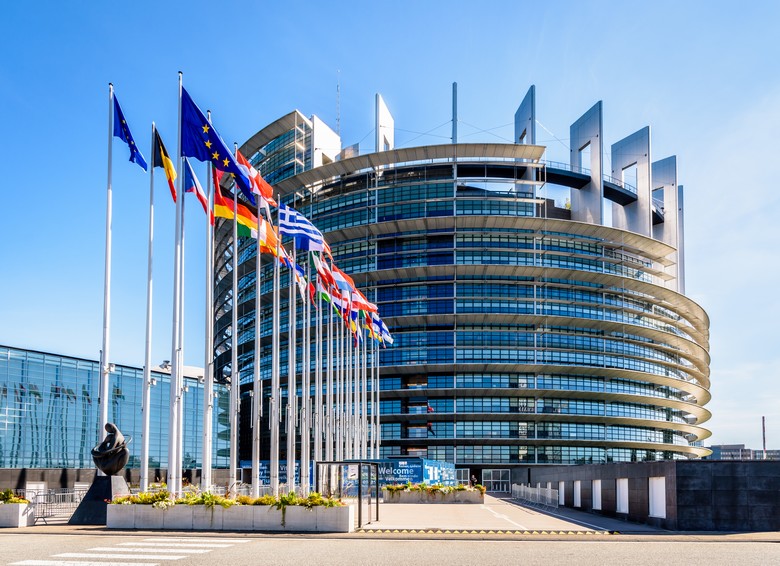From June 6th to 9th, the European elections will take place. Just weeks away from the election of representatives to the European Parliament, let’s review the mechanisms, issues, and challenges of these elections.
Who are the Members of the European Parliament?
Elected by direct universal suffrage every five years by the citizens of the member countries of the European Union, the 720 Members of the European Parliament are distributed proportionally to the demographics of the member countries (96 representatives for Germany, 79 for France, 76 in Italy…). The upcoming elections will redistribute 15 of the seats initially planned for representatives from the United Kingdom before their withdrawal from the European Union in 2020, with 27 of them already redistributed. This year, France will therefore elect 81 Members of the European Parliament. Their campaign will begin on May 27th and end on June 7th.
Members of the European Parliament have legislative, budgetary, and oversight powers. Legislative powers allow them to discuss, amend, and vote on legislative texts proposed by the European Commission. In terms of budgetary powers, the elected members of the European Parliament establish the budget of the European Union jointly with the Council of the European Union. Finally, Members of the European Parliament also have oversight powers that allow them to monitor the functioning of the Union’s institutions, the use of the budget, and the implementation of European legislation.
Organization into Political Groups
Members of the European Parliament organize themselves into political groups within the European Parliament. The formations are multinational and attempt to represent common interests rather than just national ones. To form a group in Parliament, a minimum of 23 MEPs from at least 4 Member States is required. There are currently 7 political groups within the European Parliament: the European People’s Party group (176 seats), the Progressive Alliance of Socialists and Democrats group in the European Parliament (144 seats), the Renew Europe group (102 seats), the Greens/European Free Alliance group (71 seats), the European Conservatives and Reformists group (64 seats), the Identity and Democracy group (64 seats), and finally the Left group in the European Parliament GUE/NGL (38 seats). In addition to these, there are 46 “non-attached” MEPs who do not belong to any of these 7 political groups.
While Members of the European Parliament have overwhelmingly approved the new law regulating artificial intelligence (523 votes in favor, 46 against, and 49 abstentions), discussions regarding the situation in Gaza have shown differences of opinion within the hemicycle. Left and centrist parliamentary groups supported the call for a ceasefire in the region, while the European People’s Party (EPP) was more reserved on the issue. A non-binding resolution was finally adopted on January 18th, which provided for the release of hostages held in Gaza and the dismantling of Hamas.
Regarding Ukraine now, right-wing parties are the least favorable to the reception of Ukrainian refugees. However, when it comes to supplying arms to Ukraine, the extremes represented by the European United Left and Identity and Democracy groups tend to agree.
The European elections will also be influenced by national concerns. Indeed, while Eastern European countries are primarily concerned about the Russian invasion in Ukraine (40% in Estonia), the French (27%) and Danes (29%) seem concerned about environmental issues, whereas Germans prioritize immigration (31%). Consequently, European voters concerned about the climate will more likely orient their votes towards green parties, while citizens concerned about immigration will turn to far-right parties (Alliance for the Union of Romanians, Alternative for Germany, Party for Freedom in Austria…) who will then join the Identity and Democracy or European Conservatives and Reformists groups in Parliament.
The Challenges of European Elections
The European Union is currently facing major challenges such as the war in Ukraine, climate change, and the regulation of artificial intelligence, with the first law being passed just a few days ago. The upcoming elections will have a significant impact, pitting Union defenders against eurosceptics. The responses to major issues of ecological transformation, immigration, security in Europe, and digital evolution will be decided by a majority vote in the European Parliament. The national lists chosen by voters who will then join the various political groups in Parliament will therefore determine the direction the European Union will take.
To ensure the success of these elections, the European Economic and Social Committee (EESC) initiated an assessment of the risks facing the elections. A meeting was held at the European Labour Authority in Bratislava in November 2023. Following this meeting, experts, journalists, and political scientists identified various challenges for the upcoming elections.
Vous devez souscrire à un abonnement EurasiaPeace pour avoir accès au contenu - Prendre votre abonnement





